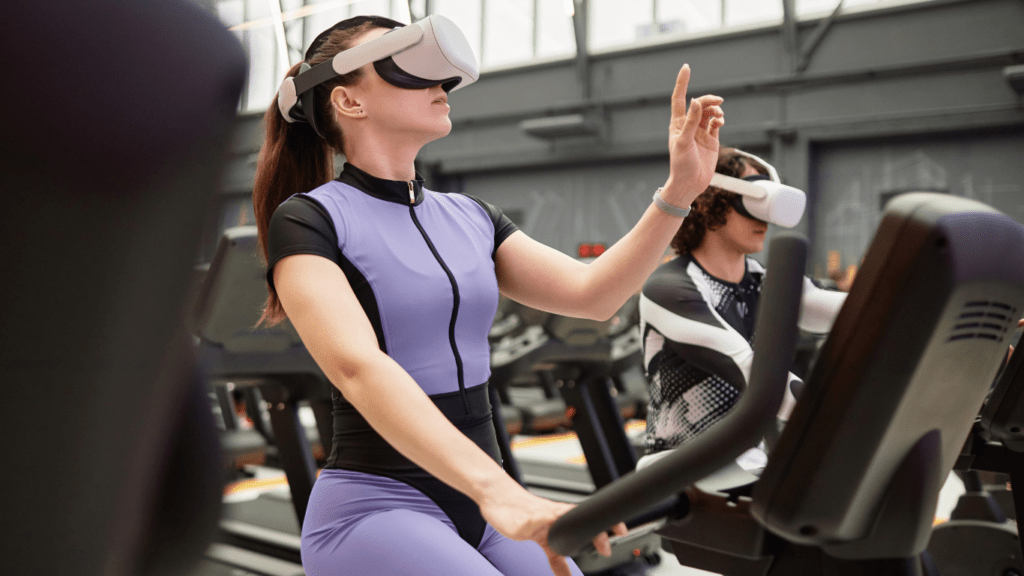Team training isn’t what it used to be. Gone are the days of one-size-fits-all approaches and endless lectures. Today, companies are embracing innovative methods to build stronger, more agile teams that can adapt to rapid changes. It’s exciting to see how technology and psychology are reshaping the way we work together.
Understanding The New Era Of Team Training
The new era of team training integrates advanced tools and techniques to address the evolving demands of the modern workplace. Teams now rely on data-driven insights, combining analytics and performance metrics to identify strengths, gaps, and opportunities for growth. This approach ensures that training aligns directly with an organization’s objectives and individual development goals.
Technology plays a central role in shaping these practices. Virtual reality (VR) and augmented reality (AR) provide immersive training experiences, enabling teams to practice in realistic, risk-free environments. For example, employees in customer service roles can simulate handling escalated situations, while healthcare teams can rehearse critical procedures without endangering patients.
Personalized learning paths redefine how individuals engage with training material. By tailoring modules based on skill levels and job functions, team members focus on areas most relevant to their roles. This customization, supported by artificial intelligence, delivers efficiency and maximizes outcomes.
Collaborative platforms enhance communication and teamwork during training activities. Tools like Slack and Microsoft Teams facilitate real-time collaboration, keeping team members connected and encouraging knowledge sharing across dispersed groups.
The inclusion of gamification elements boosts engagement and motivation. Point systems, leaderboards, and rewards create a sense of achievement, making learning interactive and enjoyable. These methods foster healthy competition while reinforcing desired behaviors and skills.
Key Modern Practices Revolutionizing Team Training

Modern team training integrates innovative practices that optimize learning and performance. These methods leverage technology, foster collaboration, and prioritize individual growth to address the complexities of today’s workplace.
Technology-Driven Training Methods
Advanced technology enhances the effectiveness of team training. Virtual reality (VR) and augmented reality (AR) create immersive environments for role-specific and scenario-based exercises, reducing risks and improving skill retention. Gamification elements, such as:
- progress tracking
- rewards
- challenges
boost engagement. Data analytics tools measure performance metrics in real-time, identifying skill gaps and enabling targeted improvements.
Emphasis On Collaboration And Communication
- Team training now prioritizes interactive platforms and communication strategies.
- Tools like Slack, Microsoft Teams, and Trello streamline collaboration through centralized workflows.
- Simulated group activities, including virtual brainstorming sessions and problem-solving exercises, strengthen inter-team dynamics.
- Real-time feedback mechanisms foster open communication, resolving conflicts and enhancing trust within teams.
Personalized Development Plans
Tailored training plans maximize outcomes by addressing individual needs. Assessments identify skill levels, enabling companies to assign role-specific learning paths. Adaptive learning platforms, such as Coursera and edX, offer modules based on user progress, ensuring relevance. Individualized coaching builds competencies aligned with personal and organizational goals, fostering continuous professional growth.
The Impact Of Modern Practices On Team Performance
Modern training practices directly influence team performance by creating smarter, more adaptable, and cohesive teams. These methods leverage technology and data to address specific challenges, unlocking new levels of efficiency and engagement.
Increased Efficiency And Productivity
Modern practices improve workflows by integrating technology like analytics-driven platforms and collaborative tools. These solutions identify knowledge gaps and tailor training to address them, reducing downtime in the learning curve. For example, personalized learning paths enable employees to focus on skill deficiencies, cutting unnecessary repetition.
Immersive tools like VR simulations prepare teams for real-world scenarios. Simulated environments replicate high-pressure situations, allowing teams to experiment without risking operational output. Data from training sessions provides actionable insights, helping refine processes and enhance decision-making.
Enhancing Team Morale And Engagement
Engagement increases when training incorporates gamification, providing rewards and recognition for milestones. For instance, interactive dashboards track progress, fostering a sense of accomplishment that motivates teams.
Collaborative platforms strengthen communication by facilitating real-time feedback and knowledge sharing. Tools like Microsoft Teams create a sense of connection, even within remote teams, by centralizing discussions and resources. Additionally, morale rises as individual development plans demonstrate a company’s investment in employee growth, aligning personal ambitions with organizational success.



 Injury Prevention & Recovery Specialist
Injury Prevention & Recovery Specialist
